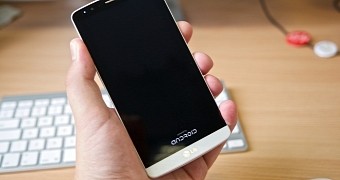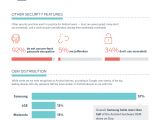As many industry experts and regular users alike have suspected, the security of Android devices is inferior to Apple's iPhones, Duo Security researchers reveal.
After previously tackling the security issues associated to iPhone devices on BYOD (Bring Your Own Device) corporate networks, Duo researchers have done the same thing for Androids.
A third of Android devices don't use a lock screen passcode
According to a Duo Security investigation, only 1 in 10 Android devices has pre-boot passcode device encryption enabled on the device, which puts company data at risk if the device is stolen or lost.
Additionally, 1 in 3 Android smartphones also doesn't use a passcode on the lock screen, allowing attackers easy access to the full device. Similarly, only 1 in 20 iPhones doesn't have a passcode enabled on their lock screens.
Even worse, 1 in 20 (5%) of all BYOD Android devices are rooted, while for jailbroken iPhones, this number is only 1 in 250 (0.4%).
Android's sketchy update model leaves corporate data exposed
But the biggest issue with Android remains the ecosystem's fragmentation, due to a large number of OEMs (original equipment manufacturers) that didn't always try hard to keep up with the latest Android OS releases, nor did they care about patching and delivering timely updates. This is now an old problem all Android users are aware of.
Duo Security numbers show that 20% of Android devices are running 5.1.1, which is almost three times more than the current 6.0 release, considered to be the stable branch. Compared to Apple, almost half of the company's iPhone users surveyed by Duo Security were running the latest iOS 9.2 version.
The same data also reveals that 32% of Android users are still on the older 4.x branch, the one affected by both of the Stagefright vulnerabilities (1 and 2), which Google has properly finished patching only this January.
With around 9 in 10 Android devices vulnerable to the most dangerous Android vulnerability ever discovered to this point, corporations may not be so willing to allow Androids on their network.
As another Duo Security data set reveals, Androids aren't really that popular in BYOD networks anyway, where iPhones outmatch them in a 1-to-2 ratio.

 14 DAY TRIAL //
14 DAY TRIAL // 

